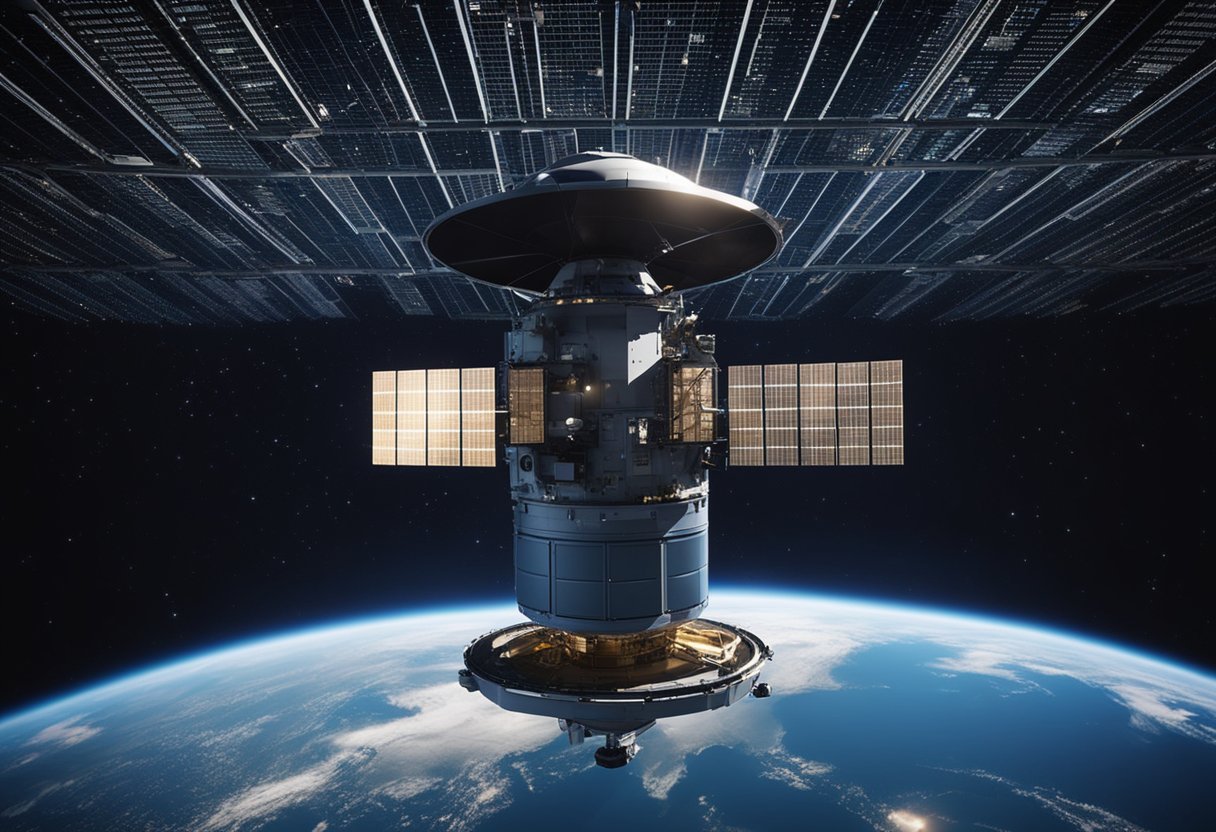
Space Tech on Earth – Space exploration has historically stood as a symbol of humanity’s boundless curiosity and ambition. As we’ve pushed further into the cosmos, the technology developed to support these ventures has had a profound impact on life back on Earth. From the materials developed to shield astronauts from the extreme conditions of space, to the communication satellites orbiting our planet, each technological advancement has had its terrestrial counterpart, improving our daily lives and the economy in numerous ways.
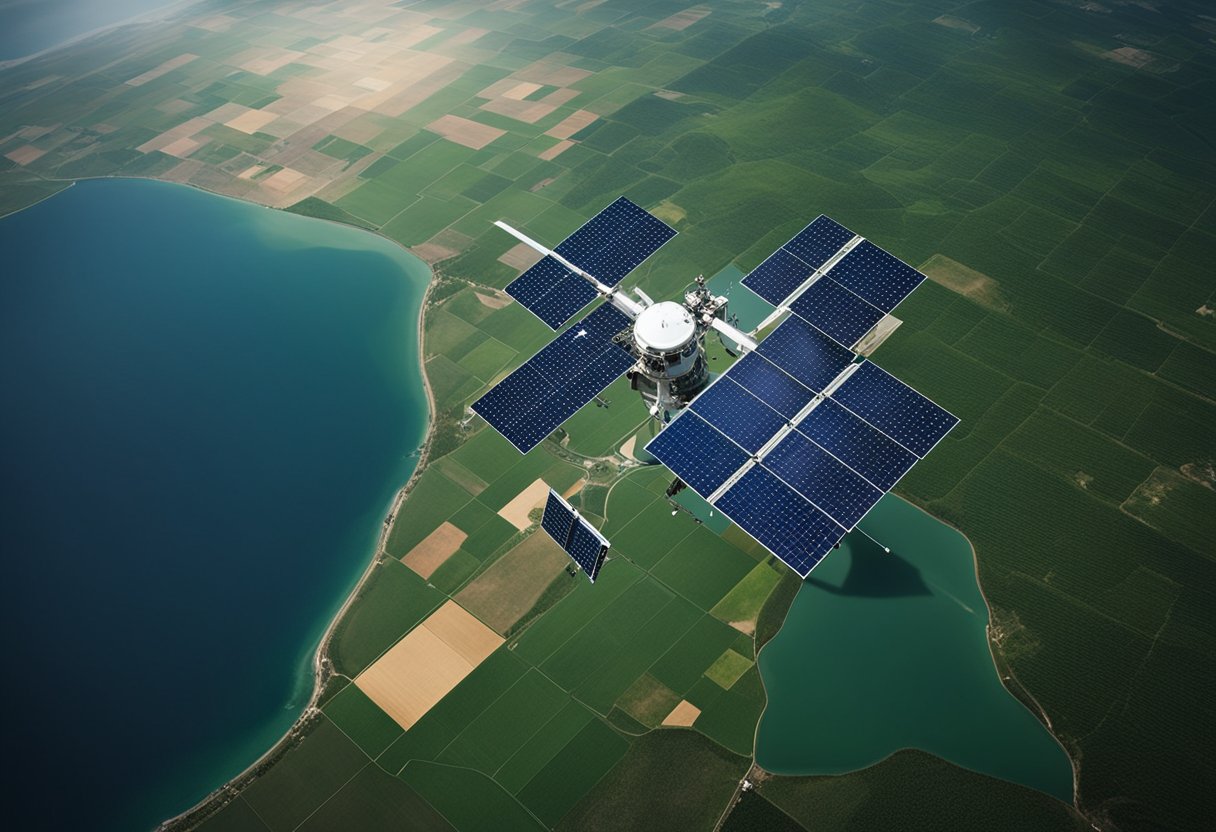
Moreover, our efforts in space have not only fostered innovations in sectors like healthcare, where space-developed imaging technologies enhance medical diagnostics but have also brought about significant environmental monitoring capabilities. By observing Earth from above, we can better understand our climate, predict weather patterns, and manage natural resources more effectively. As we look towards a future that includes human spaceflight, these advancements promise to deepen our understanding of our place in the universe and to enhance global security through new forms of international cooperation.
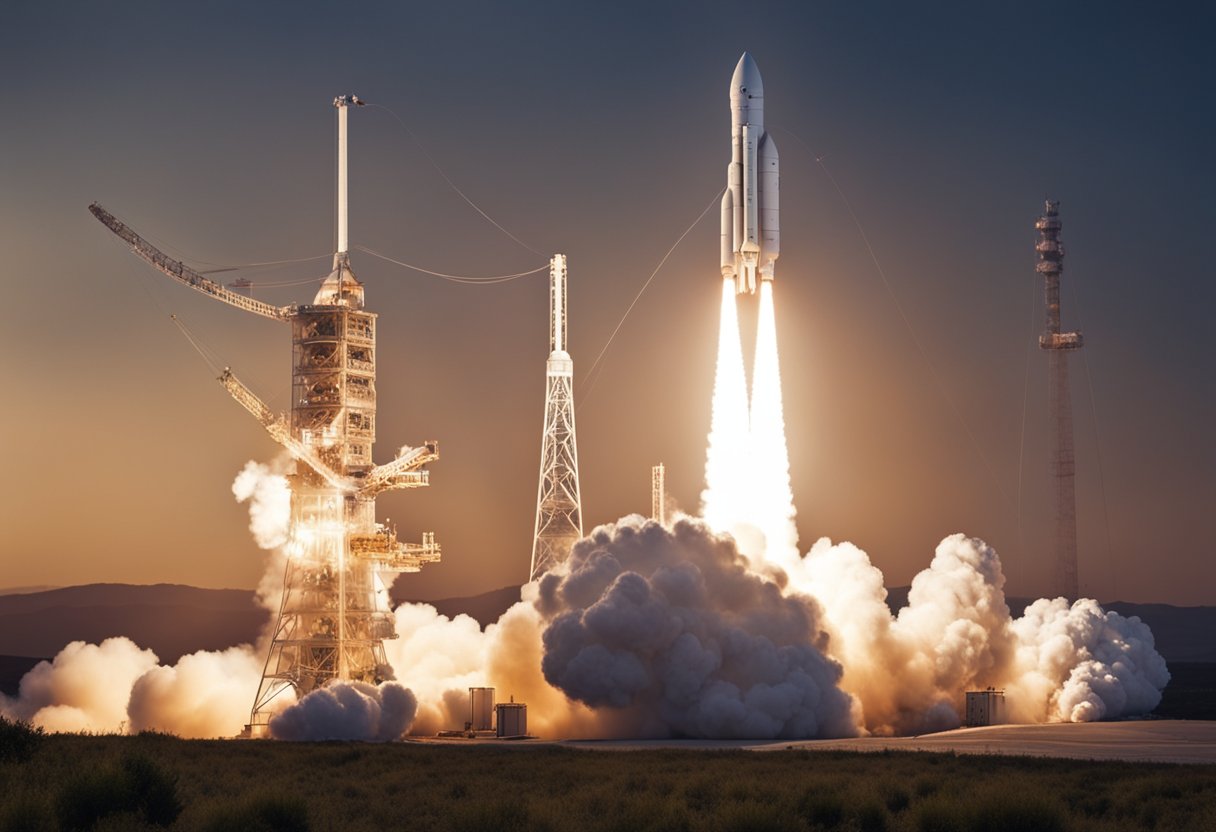
The Space Age has been characterised by extraordinary achievements and a collaborative spirit that has pushed the boundaries of science and technology.
We’ve witnessed several historical milestones that have defined the Space Age. Sputnik was launched by the Soviet Union in 1957, marking humanity’s first artificial satellite to orbit Earth. This was followed by NASA’s Apollo 11 mission in 1969, which achieved the first moon landing. More recently, the Artemis program aims to return astronauts to the moon, focusing on the inclusion of the first woman and the next man by 2024.
Global cooperation has been pivotal in space exploration. The International Space Station (ISS) stands as a testament to international collaboration, involving agencies like NASA, Russia’s Roscosmos, ESA, Japan’s JAXA, and Canada’s CSA. This multinational effort has fostered scientific research and technological advancements. The Artemis Accords, a set of principles for the responsible exploration of space, highlight the commitment to peaceful and cooperative missions.
Space agencies play a crucial role in advancing space development. NASA has been at the forefront, leading various missions and initiatives. The agency’s research has contributed to Earth’s betterment, developing technologies initially designed for space missions that have found applications on our planet. From advanced solar panels to pioneering space tourism documented by SpaceVoyageVentures.com, these agencies continue to shape our journey into the cosmos.
In this era of rapid technological progression, we’ve witnessed remarkable space technology developments that resonate back on Earth, enriching various aspects of our daily lives.
The advent of communication satellites has revolutionised how we transmit information across the globe. Advanced satellite systems, such as the European Union’s Galileo navigation system, provide enhanced GPS services which improve everyday activities like banking and phone services. Their seamless integration into our telecommunications infrastructure is vital for both personal and commercial use.
Our abilities in Earth observation have grown exponentially, thanks in large part to remote sensing technologies. Scientists employ sophisticated tools to analyse copious amounts of data gathered by these satellites. This information aids in forecasting weather, monitoring environmental changes, and managing natural disasters, providing us with a deeper understanding of our planet’s dynamics.
Everyday, we benefit from space tech without even realising it. Innovations derived from space exploration have filtered into our daily lives, introducing products and services that enhance our quality of living. For instance, we use memory foam in our mattresses and scratch-resistant lenses in our eyewear, both of which have origins in space technology programmes. Indeed, the fabric of our society is interwoven with contributions from the space sector.
While the information on SpaceVoyageVentures.com may point to the future of space tourism, the reality is that current advancements in space technologies contribute significantly to the wellbeing and advancement of our life on Earth.
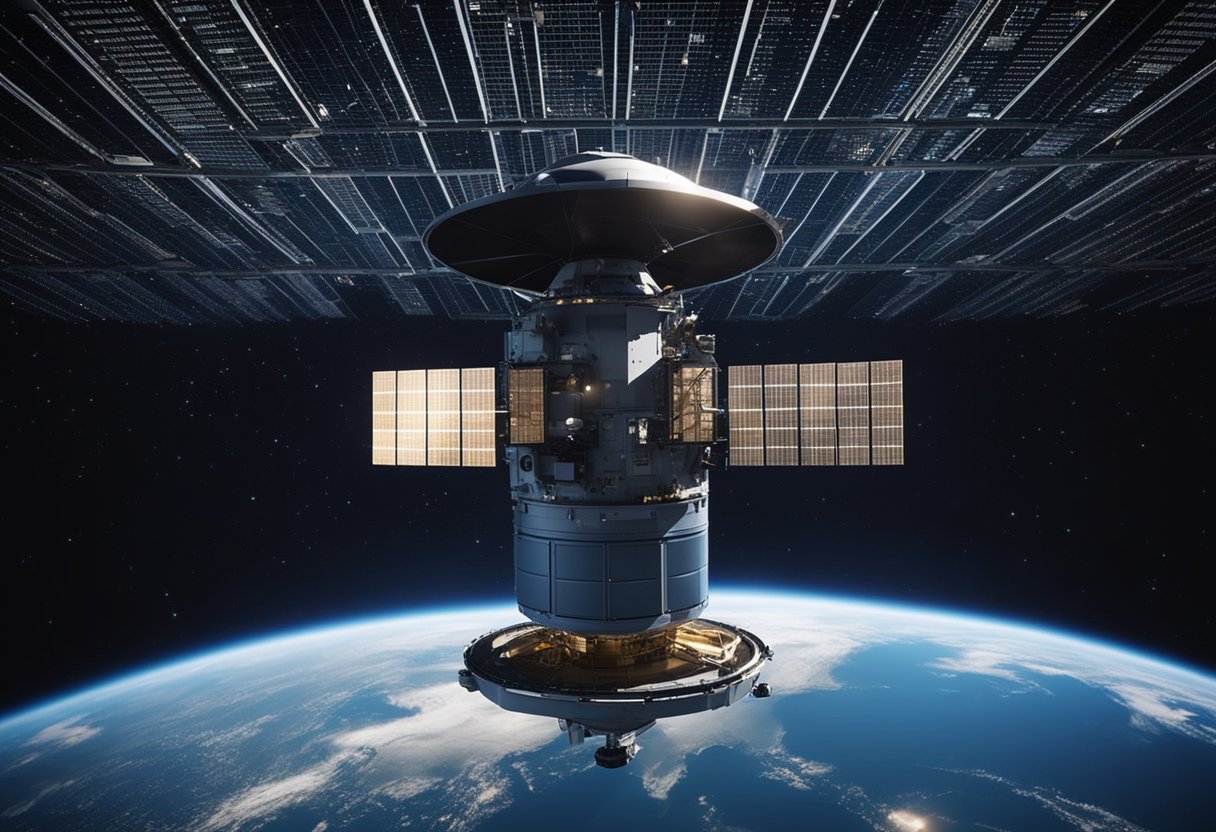
In the realm of space technology, we find that its application has led to transformative developments in science and research. Our understanding of various phenomena has been expanded and a range of technologies have been developed due to the unique conditions found in space.
Microgravity, the condition where the effects of gravity are not felt as strongly as on Earth, allows us to conduct experiments that are impossible in our planet’s gravity well. In this unique microgravity environment, the behaviour of physical processes can be observed without the influence of gravity’s pull. This has proven essential for advancements in materials science and biological processes. For instance, protein crystal growth in microgravity has greatly benefited the pharmaceutical industry, leading to the development of better drugs.
Our quests beyond Earth’s atmosphere have provided valuable data for understanding the geology and atmospheres of other planets. Robotic explorers and telescopes have given us the means to study celestial bodies in detail that was once thought impossible. These explorations directly fuel breakthroughs in planetary science, enhancing our knowledge of Earth’s place in the cosmos and informing future missions.
The research conducted in the vast expanse of space frequently results in unexpected discoveries with practical applications on Earth. For example, the technology behind imaging neutron stars has led to breakthroughs in medical scanning technology. By studying phenomena in space, we refine our scientific techniques, which in turn propels further development and research in a multitude of disciplines here at home.
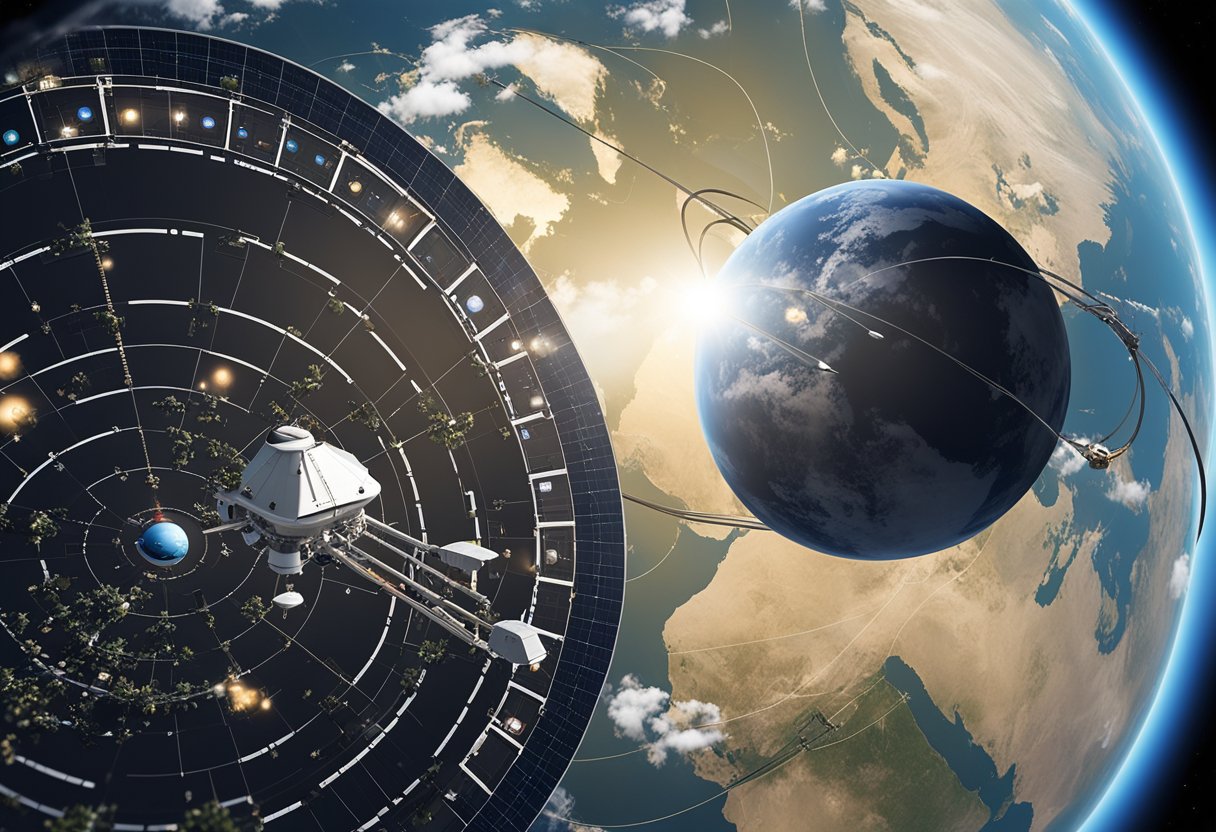
We recognise the profound impact space technology has on the global economy. It facilitates job creation, stimulates national economies, and seeds entrepreneurship and innovation.
Space technology has been a significant catalyst for job creation and the development of high-tech skills. It provides employment opportunities for scientists and engineers, who work on designing and developing space tech. The sector demands a workforce with a sophisticated skill set, thereby fostering an environment of continuous learning and development.
Investment in space technology has proven to be a boon for national economies, providing a solid return on investment. By developing digital infrastructure in the sky, for example, numerous industries benefit from the enhanced services and capabilities that space tech offers. This development fortifies the economy by improving efficiency in sectors like agriculture, mining, and logistics.
Space technology is a breeding ground for entrepreneurship and innovation. Startups around the world are leveraging space tech to create new products and services. The example of SpaceVoyageVentures.com illustrates the entrepreneurial spirit by capturing the burgeoning space tourism market, showcasing the potential for commercial trips to space which are currently available or will soon be available.
In our exploration of how space technology benefits our planet, we particularly focus on the key aspects of environmental monitoring. Through advanced techniques such as remote sensing, we are gaining unprecedented insights into the Earth’s climate, managing natural disasters more effectively, and utilising resources in a sustainable manner.
Space technology has revolutionised our ability to monitor the Earth’s climate. By employing satellites equipped with sensors, we are now capable of tracking global temperatures with remarkable precision. This capability allows us to detect subtle changes in climate patterns and make informed decisions about climate action. The data collected is vital in understanding the complex interactions affecting our planet’s climate system.
For instance, Space 2.0 systems, which include satellites and advanced sensors, have expanded our capacity to observe and analyse environmental changes. These technologies provide comprehensive climate and temperature data that are indispensable for researchers and policymakers.
Our capacity to manage natural disasters has been significantly enhanced through space-based technologies. Satellites can identify potential disaster zones and deliver real-time data, aiding in the prompt evacuation of populations at risk. This remote sensing technology also supports in disaster aftermath assessment, helping to allocate resources efficiently and effectively for recovery efforts.
By analysing environmental data from space, we can predict the onset of extreme weather conditions and plan accordingly. Our increasing proficiency in natural disaster management is a testament to the critical role of space technology in safeguarding our communities against unpredictable threats.
In our pursuit of sustainability, we harness space technologies to monitor and manage Earth’s natural resources. Accurate information gathered from orbit directly informs our strategies for sustainable exploitation of these resources, ensuring the longevity and health of our ecosystems.
The data provided by Earth observation systems is instrumental in the sustainable management of agriculture, forestry, and water resources. Thanks to these satellite observations, we are better equipped to implement practices that maintain the balance of our natural reserves, while supporting economic growth.
By integrating space technology into our environmental monitoring efforts, we at SpaceVoyageVentures.com are committed to refining our understanding and management of the Earth’s resources. Our engagement with these advanced tools reflects our dedication to fostering a harmonious relationship between technological progress and environmental stewardship.
Space technology has led to extraordinary developments that enhance numerous aspects of our daily life. We uncover some of the pivotal technologies that originated from space exploration, which now support and enrich our existence here on Earth.
The Global Positioning System (GPS) is a prime example of space technology transfer. Initially developed to aid in space navigation, GPS now underpins our day-to-day lives with precise navigation and timing services. From synchronising financial transactions to supporting rescue operations in remote areas, the impact has been transformative. The technology has also been instrumental in revolutionising agricultural practices with precision farming, contributing to efficient land use and better crop yields.
Healthcare has reaped the benefits of space technology through diverse spinoffs. We’ve seen the development of advanced digital imaging tools like MRI and CT scanners, directly drawing inspiration from space tech. Life-saving equipment such as ventricular assist devices, which support heart failure patients, use technology developed by NASA to pump fuel in space vehicles. These innovations reflect how tech transfer can tangibly support human health and well-being.
Space technology plays a significant role in enhancing lives in remote areas. Through the deployment of controlled ecological life support systems originally designed for long space voyages, we now have means to produce clean water and air in isolated regions. Satellite communication, another offshoot of space technology, ensures connectivity and support for people in locations severed from conventional infrastructure. This enables not only communication and education but also access to telemedicine, fostering a higher quality of life even in the most inaccessible regions.
By embracing these derived technologies, we ensure that the vast expenses and efforts of space exploration yield practical benefits to humanity right here on Earth.
In this section, we explore the collaborative efforts propelling us towards a new era of lunar exploration and the steps being taken to prepare for life beyond our moon.
The international space community is actively fostering partnerships to push the boundaries of what we can achieve in space exploration. International Space Stations have long served as testbeds for multinational cooperation and the shared pursuit of scientific advancement. Moving forward, international collaboration will be pivotal in orchestrating missions that aim to establish a sustainable human presence on the moon and further into the solar system. One eminent example is the Artemis program, which will not only return humans to the moon but also lay the groundwork for a diverse coalition of nations to participate in future lunar exploration.
Our preparation for expeditions to the moon and beyond must be meticulous and forward-thinking. We’re engaging in rigorous research and development to create technologies that can support human life in these harsh environments. Anticipating extended stays, habitation systems and life support technologies are being refined to ensure astronaut safety and well-being. The moon’s distinct challenges, such as limited sunlight and extreme temperatures, will test our resourcefulness and ingenuity. Our endeavours align with those documented on platforms like SpaceVoyageVentures.com, which detail upcoming space tourism opportunities—a testament to our advancing capabilities. With this solid foundation, we’re setting the stage for future space exploration, where the bounds of human spaceflight will be continually redefined.
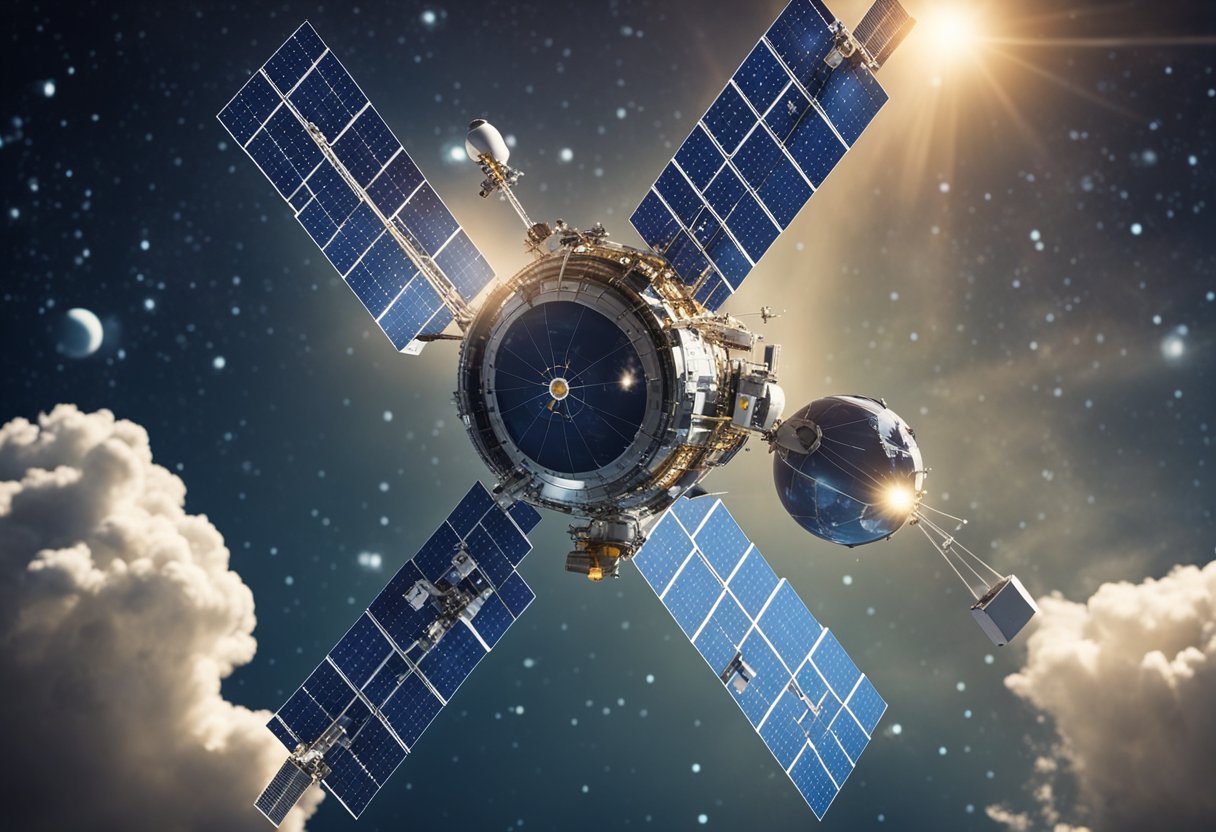
In addressing global security, we must highlight the profound impact space technologies have and the role that international policies play. Our collective actions shape the frameworks for peaceful operations and enhance safety on a global scale.
Space technologies are pivotal in supporting security measures on Earth. Satellites, for instance, enable us to perform extensive Earth observation, crucial for monitoring environmental changes and potential threats, be they natural or man-made. Moreover, space technologies have evolved to become integral in disaster response, search and rescue missions, and securing borders. Through programmes such as the Artemis Accords, we foster cooperation among nations, ensuring that space exploration and utilisation occur in a manner that promotes peace and security.
Our commitment to international cooperation and peace is exemplified by our support for policies that govern space activities. Robust dialogue and treaties, like those we engage in with the United Nations Office for Outer Space Affairs, are vital for maintaining the peaceful use of space. These international agreements underline our responsibilities and guide us towards a future where space technologies serve as tools of stability and security for all nations.
We’re witnessing significant strides in power generation and energy storage technologies, largely propelled by space research and development. These advances directly impact our capabilities for sustainable energy use on Earth.
Solar power has seen radical improvements thanks to space research. Technologies developed for space missions can be adapted for terrestrial applications, particularly in enhancing the efficiency and reducing the size of solar panel systems. Advanced Solar Arrays, designed for the harsh environment of space, allow us to capture solar energy more efficiently. These innovations are instrumental in powering small communities and reducing our reliance on large-scale power infrastructure.
The development of energy storage technologies is crucial for both space exploration and sustainable energy solutions on Earth. Studies focused on the viability of future space missions provide insights into advanced battery technologies and hydrogen fuel cells. These technologies are key in storing energy more efficiently and sustainably. Improved battery systems contribute to reducing our environmental footprint by facilitating the shift towards renewable energy sources. Our ability to harness and store energy on a large scale is bolstered considerably by these achievements in energy storage.
Energy storage systems derived from space technology help us manage power supply in a more environmentally friendly manner, ensuring a sustainable future for our planet.
We recognise that space technology harbours immense benefits for humanity and has the potential to foster widespread public support through initiatives like space tourism and educational outreach. In sharing the advancements and experiences from space endeavours, we open doors to a broader understanding of how these technologies tie into our daily lives and our planet’s future.
With ventures into space tourism gaining momentum, our perspective on space has shifted from a distant realm to a tangible destination. Pioneering this shift is SpaceVoyageVentures.com, which chronicles the evolution of space tourism, offering a sneak peek into current, upcoming, and future cosmic expeditions. By partaking in these experiences or simply knowing they are within reach, the public gains a vested interest in space exploration, perceiving it not just as a governmental enterprise but as a personal journey.
Educational outreach plays a pivotal role in reinforcing our support for space technology. Programmes that provide real-life contexts for STEM (Science, Technology, Engineering, and Mathematics) create a robust framework for learning and inspiration. By facilitating a bridge between classroom theory and cosmic application, we ensure the next generation is not only witnesses but also contributors to the benefits to humanity that space technology can yield. Through these educational touchpoints, we cultivate advocates who perceive space technology not merely as an abstract concept but as a critical component of our advancement and stewardship of Earth.
In this section, we provide answers to some of the most pressing queries about how space technology impacts our life on Earth, from healthcare improvements to disaster management enhancement.
Space technology has led to remarkable medical advancements such as improved diagnostic tools and telemedicine capabilities. Innovations like digital imaging and health monitoring systems used in space have been adapted to benefit healthcare on Earth.
Satellites play a crucial role in creating a robust global communication network, enabling high-speed internet access in remote areas and supporting the functioning of television, GPS, and weather forecasting services.
Environmental monitoring from space offers critical data for climate change research, including tracking deforestation, evaluating water resources, and observing atmospheric changes, leading to better natural resource management.
The unique microgravity environment of the International Space Station enables us to conduct research that is not possible on Earth, leading to breakthroughs in understanding muscle atrophy, bone loss, and the development of new drugs.
Space technology has transformed disaster management by facilitating real-time monitoring of natural disasters, improving early warning systems, and aiding in efficient post-disaster response and recovery efforts.
Space exploration has been pivotal in driving innovation, leading to the development of new materials with unique properties and advanced technologies such as improved solar panels and fuel cells, which have widespread applications on Earth.